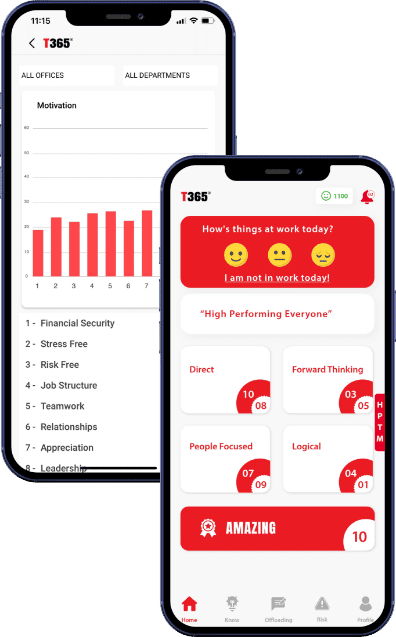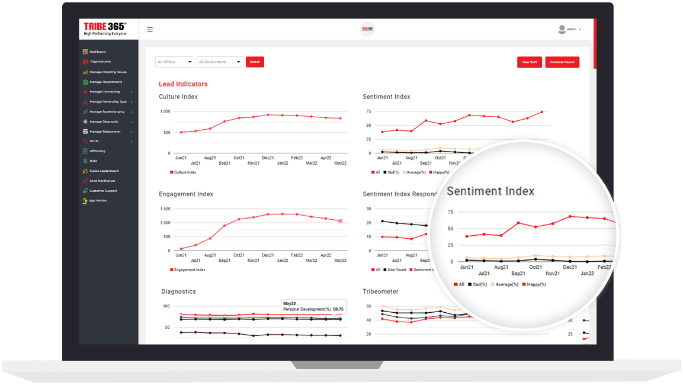How to Deal With Stress at Work: 5 Tips to Help You Cope
Everyone throughout human history has experienced stress on one level or another.
From Napoleon biting his nails before his latest conquest of Europe to William Shakespeare restlessly fidgeting ahead of the premiere of his latest play, stress doesn’t discriminate: it affects anyone and everyone differently.
And it’s no different in the modern workplace.
Work, for the most part, is good; it offers structure and regular satisfaction. Some people even enjoy pressure, and say that it leads to high performance.
But the greater or more unrelenting the pressure and demands, the more likely it is that workplace stress will begin to overpower you, leading to burnout.
But don’t panic!
If you’re feeling stressed out at work or know someone who is, just take a moment, make a cup of tea, get relaxed and let us help you better understand stress and how to deal with it when everything gets too much.
Understanding Stress
A good place to start is simply understanding what stress is.
Rather than give you an Oxford Dictionary definition, we’re going to help you look out for signs and causes.
Stress affects people differently in disparate situations. Sometimes, you will know straight away that you’re under stress, but other times you may be unaware of it.
Emotionally, you may feel irritable, anxious or even depressed when stressed. This may reflect in your physical behaviour. Maybe you’ve started biting your nails, picking at your skin or eating and drinking more than usual?

There are countless reasons why workplace stress can start but, more often than not, it comes from uncertainty.
For instance, being unsure about your responsibilities; a lack of control over the way you do your job; or a general uneasiness between yourself and your colleagues.
Whatever the reason, it’s vitally important that you understand what causes you and the people around you to become stressed before you begin dealing with it.
Plan Of Action
When you’ve found the cause of your stress don’t stop there – make a plan of action.
Map out which activities, tasks or scenarios trigger your stress, and compare them with those that you seem fine with.
Maybe you struggle speaking in front of large groups of people? Or you simply don’t have time to manage all the tasks you’ve been lumped with?
It will be good to keep a record of these causes of stress, so that you can refer to them with your manager or other team members in the future.
Take Back Control
Professor Cary Cooper, an occupational health expert at the University of Lancaster, says that “If you remain passive, thinking ‘I can’t do anything about my problem’, things will only get worse for you”.
Don’t roll over; take back control!
Connect with those around you. A good support network of colleagues, friends and family can ease your work troubles and help you see things from a different perspective.
Learn about what it takes to build a truly supportive and high performing team
Learn to say no if you can’t take on extra work or responsibility – but make sure you’re able to explain why.
But, perhaps most importantly, learn acceptance. No matter how much we may want to, people can’t control everything. Learn to let go of things you can’t change, and concentrate on the things you can.
Good Physical Health Can Help Relieve Stress
This may sound obvious, but look after yourself!
Good physical health often goes hand-in-hand with a good mental state.
So, try your best to lead a healthy lifestyle by eating a balanced diet and doing regular exercise.

You may find it useful to learn more about preparing easy meals to make after a busy day at work.
Exercising regularly not only reduces stress hormones, but also releases endorphins that make you feel good.
Learn to practise mindfulness. This doesn’t mean attending classes or courses, it simply means being present in the moment. Or, in the words of Ferris Bueller: “Life moves pretty fast, if you don’t stop and look around once in a while, you could miss it”.
Whatever you do to pass the time, try to consciously focus your attention on what you’re doing: smell the flowers if you’re gardening; absorb the music if you’re at a gig; feel the ground beneath your feet when you’re running.
In the end, there’s no right or wrong approach to reducing stress, so explore the options and find a solution that fits your lifestyle, work and personality.
Tell Your Employer
Despite everything we’ve said, it can be hard for some people to admit that they’re stressed out at work.
But it’s important to remember that stress can happen to anyone, no matter how strong they may think they are.
If you’re feeling stressed or anxious at work, talk to someone you trust. Good employers will be aware of stress-related issues and should have policies in place to help you deal with them.
Feel powerless? Communication between yourself and your superiors not good enough?
Why not tell your employers about the Tribe365 App?
A bridge between yourself and those responsible for maintaining good work environments, the app systematically improves organisational culture by:
- Tangibly measuring it
- Empowering employees to give honest, anonymous feedback that will improve wellness and performance at work
So, if work is stressing you out more than it should, let our app be the canary that lets everyone know when things aren’t where they need to be. At the end of the day, an organisation can have fantastic ideas, services and products, but its biggest challenge will always be its people.
Find out more about the Tribe 365 app and how it helps significantly reduce workplace stress here.

Interested in finding out more?
Book a meeting in with the Tribe team
today on +44 (0) 1325734847 or at
team@tribe365.co

















